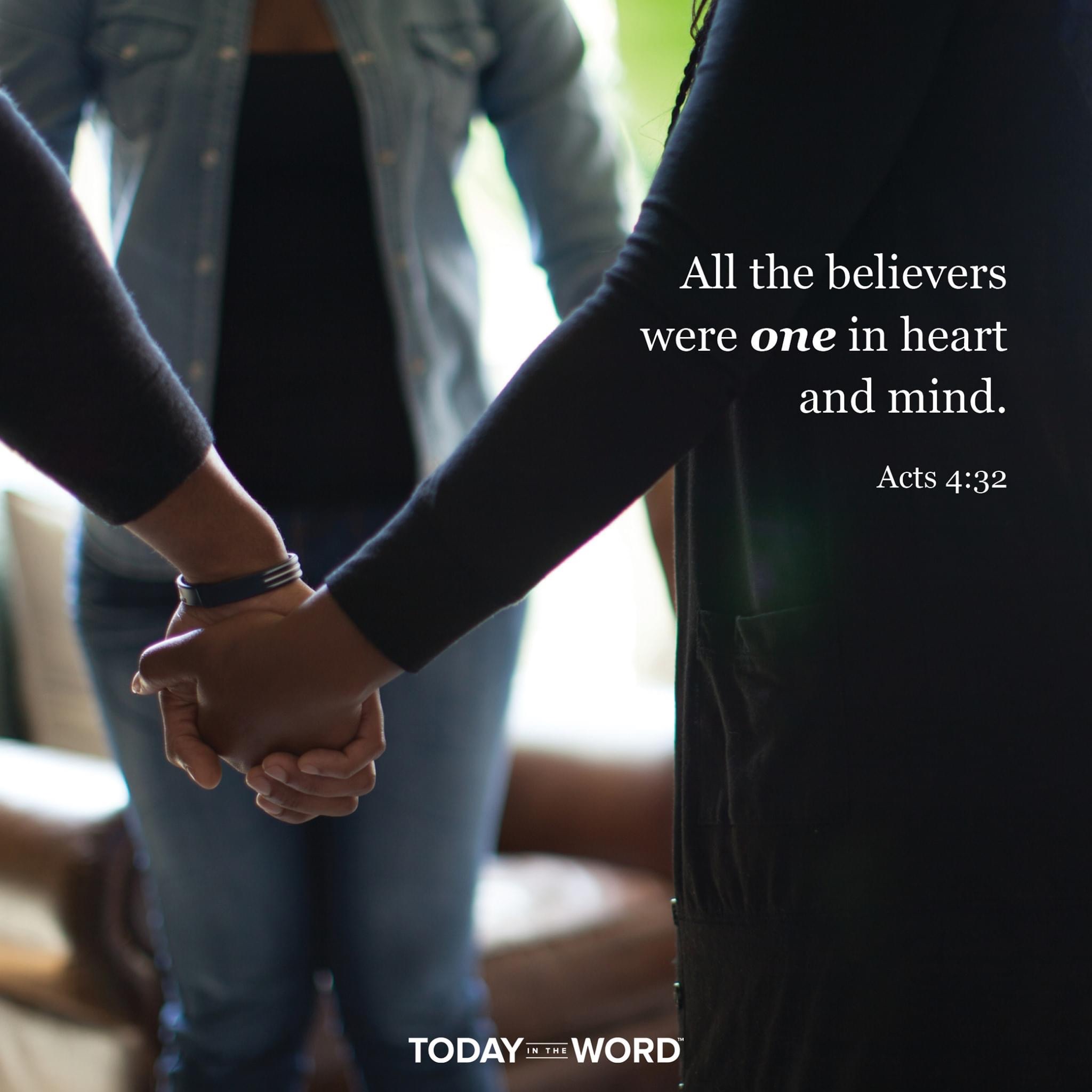December 25.—Morning. [Or December 17.]
“Earnestly contend for the faith which was once delivered unto the saints.”
The General Epistle of Jude.*
JUDE, the servant of Jesus Christ, and brother of James, to them that are sanctified by God the Father, and preserved in Jesus Christ, and called: Mercy unto you, and peace, and love, be multiplied.
3 Beloved, when I gave all diligence to write unto you of the common salvation, it was needful for me to write unto you, and exhort you that ye should earnestly contend for the faith which was once delivered unto the saints.
4 For there are certain men crept in unawares, who were before of old ordained to this condemnation, ungodly men, turning the grace of God into lasciviousness, and denying the only Lord God, and our Lord Jesus Christ.
If, while the apostles were yet alive, errors crept into the churches, we need not wonder that they multiply in these last days. We must set our faces as a flint against them.
5, 6 I will therefore put you in remembrance, though ye once knew this, how that the Lord, having saved the people out of the land of Egypt, afterward destroyed them that believed not. And the angels which kept not their first estate, but left their own habitation, he hath reserved in everlasting chains under darkness unto the judgment of the great day.
If professors leave the gospel for unholy doctrine and impure living, he who cast down the angels for their sin will not spare them.
7 Even as Sodom and Gomorrha, and the cities about them in like manner, giving themselves over to fornication, and going after strange flesh, are set forth for an example, suffering the vengeance of eternal fire.
8–13 Likewise also these filthy dreamers defile the flesh, despise dominion, and speak evil of dignities. Yet Michael the archangel, when contending with the devil he disputed about the body of Moses, durst not bring against him a railing accusation, but said, The Lord rebuke thee. (We do not know when this occurred, but the lesson of gentle speech is clear enough.) But these speak evil of those things which they know not: but what they know naturally, as brute beasts, in those things they corrupt themselves. Woe unto them! for they have gone in the way of Cain, and ran greedily after the error of Balaam for reward, and perished in the gainsaying of Core. These are spots in your feasts of charity, when they feast with you, feeding themselves without fear: clouds they are without water, carried about of winds; trees whose fruit withereth, without fruit, twice dead, plucked up by the roots; Raging waves of the sea, foaming out their own shame; wandering stars, to whom is reserved the blackness of darkness for ever.
14 And Enoch also, the seventh from Adam, prophesied of these, saying, Behold, the Lord cometh with ten thousands of his saints,
15 To execute judgment upon all, and to convince all that are ungodly among them of all their ungodly deeds which they have ungodly committed, and of all their hard speeches which ungodly sinners have spoken against him.
16 These are murmurers, complainers, walking after their own lusts; and their mouth speaketh great swelling words, having men’s persons in admiration because of advantage.
17, 18 But, beloved, remember ye the words which were spoken before of the apostles of our Lord Jesus Christ; How that they told you there should be mockers in the last time, who should walk after their own ungodly lusts.
19 These be they who separate themselves, sensual, having not the Spirit.
20, 21 But ye, beloved, building up yourselves on your most holy faith, praying in the Holy Ghost, Keep yourselves in the love of God, looking for the mercy of our Lord Jesus Christ unto eternal life.
22, 23 And of some have compassion, making a difference: And others save with fear, pulling them out of the fire; hating even the garment spotted by the flesh. (Those who are in error are not all equally guilty: some are deceivers and others are dupes. We must restore all we can, but their error must be severely dealt with. Charity to error is cruelty to souls.
24 Now unto him that is able to keep you from falling, and to present you faultless before the presence of his glory with exceeding joy,
25 To the only wise God our Saviour, be glory and majesty, dominion and power, both now and ever. Amen.
December 25.—Evening. [Or December 18.]
“Behold, He cometh with clouds.”
The Revelation of John the Divine
ANDREW FULLER has said concerning this mysterious book:—“It is that to the New Testament church which the pillar of the cloud was to the church in the wilderness, guiding it through the labyrinth of anti-Christian errors and corruptions. It must not be neglected under a notion of its being hard to be understood. As well might the mariner, amidst the rocks, neglect his friendly chart, under an idea of its being difficult to understand it.”
Chapter 1
1–3 The Revelation of Jesus Christ, which God gave unto him, to shew unto his servants things which must shortly come to pass; and he sent and signified it by his angel unto his servant John: Who bare record of the word of God, and of the testimony of Jesus Christ, and of all things that he saw. Blessed is he that readeth, and they that hear the words of this prophecy, and keep those things which are written therein: for the time is at hand.
“To induce us to give the most serious attention to the subject, a blessing is pronounced on those who ‘read, and hear, and keep’, the words of this prophecy, especially as the time of its fulfilment was at hand. There does not appear to be any other part of Scripture that is prefaced with such an inducement to read, and understand, and practically regard it.”
4–6 John to the seven churches which are in Asia: Grace be unto you, and peace, from him which is, and which was, and which is to come; and from the seven Spirits which are before his throne; And from Jesus Christ, who is the faithful witness, and the first begotten of the dead, and the prince of the kings of the earth. Unto him that loved us, and washed us from our sins in his own blood, And hath made us kings and priests unto God and his Father; to him be glory and dominion for ever and ever. Amen.
7 Behold, he cometh with clouds; and every eye shall see him, and they also which pierced him: and all kindreds of the earth shall wail because of him. Even so, Amen.
8 I am Alpha and Omega, the beginning and the ending, saith the Lord, which is, and which was, and which is to come, the Almighty.
9 I John, who also am your brother, and companion in tribulation, and in the kingdom and patience of Jesus Christ, was in the isle that is called Patmos, for the word of God, and for the testimony of Jesus Christ.
He makes no mention of his being banished there by the persecutor: true virtue never boasts, or even invites others to admire it.
10, 11 I was in the Spirit on the Lord’s day, and heard behind me a great voice, as of a trumpet, Saying, I am Alpha and Omega, the first and the last: and, What thou seest, write in a book, and send it unto the seven churches which are in Asia; unto Ephesus, and unto Smyrna, and unto Pergamos, and unto Thyatira, and unto Sardis, and unto Philadelphia, and unto Laodicea.
12, 13 And I turned to see the voice that spake with me. And being turned, I saw seven golden candlesticks; And in the midst of the seven candlesticks one like unto the Son of man, clothed with a garment down to the foot, and girt about the paps with a golden girdle.
14–16 His head and his hairs were white like wool, as white as snow (to denote that he is the Ancient of days); and his eyes were as a flame of fire; And his feet like unto fine brass, as if they burned in a furnace; and his voice as the sound of many waters. And he had in his right hand seven stars: and out his mouth went a sharp twoedged sword: and his countenance was as the sun shineth in his strength.
17–20 And when I saw him, I fell at his feet as dead. (He was overwhelmed by the glory of his Lord’s appearance. We are as yet incapable of beholding the full blaze of the Redeemer’s glory: this corruptible must put on incorruption before we shall be able to endure the sight.) And he laid his right hand upon me, saying unto me, Fear not; I am the first and the last: I am he that liveth, and was dead: and, behold, I am alive for evermore, Amen; and have the keys of hell and of death. Write the things which thou hast seen, and the things which are, and the things which shall be hereafter; The mystery of the seven stars which thou sawest in my right hand, and the seven golden candlesticks. The seven stars are the angels of the seven churches: and the seven candlesticks which thou sawest are the seven churches.[1]
[1] Spurgeon, C. H. (1964). The Interpreter: Spurgeon’s Devotional Bible (pp. 760–761). Grand Rapids, MI: Baker Book House.
















